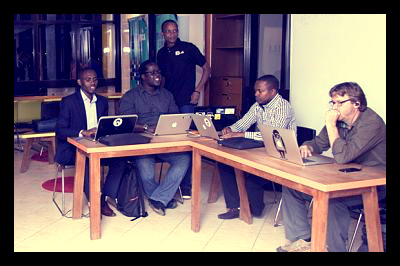
In recent years, Israel has often been dubbed “Startup Nation” – a hub for entrepreneurship and innovation. Tel Aviv is ranked the world’s second startup ecosystem behind California’s Silicon Valley, and Israeli entrepreneurs set up around 600 to 700 million new tech companies each year. These entrepreneurs are extraordinary when it comes to implementing creative ideas and raising early stage funding, contributing to Israel’s record of having the largest venture capital industry per capita in the world.
There are certainly explanations for the success of Israel’s startup scene; a well-educated entrepreneurial population, long work hours, strong funding and high employment for new startups can all be seen as contributing factors. But while Israeli citizens are doing an incredible job of setting up their companies, they have not yet established a history of building long-lasting ones. Instead, it is common for Israeli startups to sell out to larger firms after a few years. These larger firms are almost always foreign companies, who quickly acquire the startups and convert them into research and development centers.
Lately, however, the trend appears to be shifting. Israeli entrepreneurs are making efforts to build lasting, full-fledged businesses. Additionally, more Israeli companies are striving to go public in the United States. Around 70 companies listed on the NASDAQ are Israeli or affiliated with Israel in some way – the most out of any other country, with the exceptions of only the United States and China.
Israel is also looking to use its booming startup scene to contribute to global development. A Devex article noted that new companies should focus on pressing issues like poverty and child mortality, emphasizing the need to concentrate “not only on creating the next Waze to help people navigate around traffic, but also to find solutions for some of the world’s most pressing development challenges.”
Currently, 1.2 million people live in extreme poverty, and 19,000 children under the age of five die each day. Many of those deaths are preventable, and Israel’s track record of startup victories could be the answer. Recently, 70 young entrepreneurs, innovators and international development professionals met at the 2014 Israeli Designed International Development (ID2) to discuss entrepreneurship for global development. These 70 people are at the vanguard of social entrepreneurship – designing medical devices to fight cervical cancer, developing online platforms to address high unemployment in rural areas, providing a way for the poor to design and pursue their own community impact projects.
Helen Clark, the head of the United Nations Development Program, was reportedly “blown away” by the entrepreneurial strength of the ID2 participants. And ID2’s venue of choice – Israel – was well-chosen. Israeli entrepreneurs are already making great strides toward development challenges and social betterment. For example, the Chilean government successfully alerted millions of citizens to an approaching tsunami in early April with the help of eVigilo, an Israeli startup that serves as a mass notification and emergency communication platform. With its innovative spirit and entrepreneurial clout, Israel is capable of producing many more social enterprises like this. In time, “Startup Nation” could truly make its mark in global development.
– Kristy Liao


